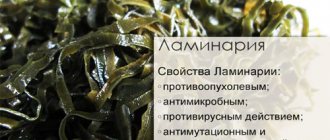Rich in vitamins and nutrients, pomegranate has wonderful taste and is liked by both adults and children. There is an opinion that it is an indispensable product for anemia. The Greeks call it the “fruit of Aphrodite”: according to legend, it was first planted by the goddess of Love.
During pregnancy, doctors advise the expectant mother to increase her intake of vitamins, and many are interested in how beneficial an exotic pomegranate fruit is for a woman in an interesting position.
Nutrient content
Pomegranate contains vitamins such as A, E, C, B1, B2, B6, B 12, K, PP , as well as minerals - iron, potassium, aluminum, copper, phosphorus, magnesium, selenium, calcium . In addition, 7 amino acids contained in pomegranate can only be found in meat products.
The main value, according to scientists, is the hexagonal ruby seeds (on average there are 600 seeds in one fruit), which contain 1 percent of the daily value of proteins , vegetable fats and 7 percent of carbohydrates . Inside the seeds there are bones that are not digested by the body and promote good intestinal motility. Bones remove cholesterol and other unnecessary substances produced by microbes and bacteria from the body that are harmful to humans. It is the seeds that are allowed to be eaten by women carrying a baby.
Nutrition during pregnancy
While expecting a baby, a woman needs to lead a healthy lifestyle and eat well.
You should avoid fatty, fried and spicy foods. They can negatively affect the functioning of the liver and kidneys. Also, frequent consumption of such foods can lead to excessive weight gain. This is fraught with swelling, the appearance of stretch marks and a deterioration in general condition. If you want to feel good and easy during pregnancy, then give preference to proper nutrition. Consume boiled and steamed foods. Eat lean meats and healthy grains. The expectant mother's food should contain dairy products, vegetables and fruits. Pomegranate should always be in a woman’s diet during pregnancy.
Every third expectant mother complains of early toxicosis. It manifests itself with nausea, weakness and headaches in the first trimester. Sometimes a woman experiences uncontrollable vomiting, which occurs after eating and does not bring any relief.
The benefits of pomegranate during pregnancy in this case are also quite great. Thanks to its sweet and sour taste, it fights nausea and normalizes a woman’s condition. The fruit also contains a large amount of liquid. The juice of the grains partially replenishes the loss of water that occurred during vomiting.
Pomegranate during early pregnancy
Doctors recommend consuming the fruits for toxicosis, which usually torments pregnant women in the early stages. It helps improve appetite and normalize digestion, and the characteristic sourness of the fruit successfully copes with attacks of nausea.
Pomegranate juice helps remove excess fluid from the body . Therefore, by including it in her daily diet, the expectant mother will get rid of edema and at the same time will not lose such a useful element as potassium , which is usually removed when taking decongestants along with excess moisture. On the contrary, a high potassium content favors the functioning of the heart and blood vessels.
If a woman includes pomegranate in her menu from the first trimester, it will have a positive effect on the formation and development of all organs and systems of the unborn baby, scientists say.
Who is recommended to eat every day of the grant in the later stages?
The fruit can be eaten whole or consumed as juice. It is best to do this before the main meal.
Freshly squeezed juice
The drink is used as a means of preventing the development of serious illnesses. In the process of using it, you should adhere to a number of rules:
- Pomegranate is eaten after meals if there are no contraindications. You can eat one small or half a large fruit at a time.
- Juice can be consumed 1 glass at a time. During the week you can drink no more than 4 glasses.
Pomegranate seeds
It is recommended to avoid seeds during pregnancy. They contain phytoestrogens. The component is dangerous for the fetus and can cause spontaneous abortion.
In the last months of pregnancy, the fetus helps remove urine from the body. Additionally, it serves to prevent the development of severe swelling.
The situation is dangerous and can lead to the death of the fetus. The threat will be minimal if you drink one glass of juice every day. If this is not possible, then you can eat one pomegranate on an empty stomach.
During pregnancy, a woman cannot risk her health. She must carefully select food products. Pomegranate is healthy because it contains a large amount of vitamins and microelements beneficial to the body. You should buy only fresh and high-quality fruit. If there is damage or mold on it, further use is considered impossible.
Pomegranate serves as an effective prevention of toxicosis and other dangerous manifestations during pregnancy. You are allowed to eat one fruit every day. Only freshly squeezed juice has a positive effect. The packaged version does not contain useful components.
Closer to childbirth, this berry will help prepare the muscle tissue of the reproductive organs, and this berry also promotes the production of oxytocin, which is required for the normal course of the birth process.
Pomegranate can also improve blood clotting, which will help avoid heavy bleeding during childbirth.
Second and third semesters
Containing vitamin B and folic acid, pomegranate helps the body absorb iron from foods, thereby increasing the amount of hemoglobin in anemia.
The diuretic properties of the fetus cope with severe swelling in the later stages, and its low calorie content helps maintain the optimal weight for the pregnant woman.
In the third trimester, women often complain of problems with blood pressure. Antihypertensive substances present in pomegranate seeds gently lower blood pressure.
It is very important for a mother and her future baby to strengthen the body's defenses. This is facilitated by the vitamins and minerals contained in this unique fruit. By eating it every day, a woman can be calm: she is definitely not in danger of catching a cold.
Gingivitis is a common annoying ailment in pregnant women. The juice of pomegranate seeds has an anti-inflammatory effect in diseases of the oral cavity.
For stomach and intestinal disorders, you can safely consume pomegranate, the astringent and tanning properties of which relieve diarrhea and normalize microflora.
Its strengthening effect on muscle tissue facilitates the process of childbirth.
Benefits of pomegranate:
- Increasing the amount of hemoglobin, preventing anemia.
- Boosting immunity.
- Reducing the amount of cholesterol.
- Normalization of glucose.
- Calming effect on the central nervous system.
- Prevention of cardiovascular diseases.
- Anti-inflammatory effect.
- Prevention of cancer.
- Fighting bacteria.
- General strengthening effect.
Pomegranate contraindications for pregnant women
There are no serious contraindications to the use of pomegranate during the gestational period. But under certain circumstances, at different times, it can bring both benefit and harm. Throughout the gestational period, it is necessary to take into account that during pregnancy the body’s sensitivity to different products changes.
In some cases, pomegranate can cause an allergic reaction in the form of urticaria or even Quincke's edema. In addition, throughout the entire gestational period, most expectant mothers are prone to constipation. And this fruit can only enhance this condition. It should be used with caution for the following disorders:
- increased acidity;
- gastritis;
- stomach ulcer;
- low blood pressure.
First trimester
In the first trimester, a pregnant woman often suffers from toxicosis. At the same time, pomegranate normalizes digestion and reduces the strength and frequency of vomiting attacks. True, some sources report that if there is a threat of miscarriage, this fruit is contraindicated, since it promotes the production of the hormone oxytocin, which increases the tone of the uterus.
Around the second trimester, expectant mothers begin to experience problems associated with venous insufficiency. And pomegranate can strengthen the walls of blood vessels. But at the same time, most pregnant women experience manifestations of gastroesophageal reflux in the form of heartburn, which occurs due to the reflux of acidic stomach contents back into the esophagus.
The edible part of the pomegranate mainly consists of grains covered with a juicy shell
Pomegranate is not universal even for a healthy, strong person. During pregnancy, it is especially important to take into account contraindications, since the consequences can be severe for mother and child.
Contraindications to the use of pomegranate, its components and products made from it:
- Hypotension. It lowers blood pressure, which is dangerous for a pregnant woman with hypotension.
- Tendency to heartburn. Pomegranate is saturated with natural acids that destroy the mucous membrane of the digestive tract. Their effect on the body of a pregnant woman, especially with increased stomach acidity, is definitely negative.
- Dental problems. Teeth are a risk area for almost all pregnant women. And the acids contained in pomegranate destroy tooth enamel faster and more aggressively. By the end of pregnancy, a woman may remain toothless.
- Predisposition to constipation. During pregnancy, this problem is relevant even without pomegranate. Its consumption aggravates it. The fruit is rich in tannins, which “create” constipation. The same applies to hemorrhoids and fissures of the anus.
- Kidney problems. Consumption of the fruit by a pregnant woman may accelerate stone formation or stone movement.
- High hemoglobin. Fruit can increase this indicator to undesirable levels.
- Personal intolerance. The consequences, at best, are itching or a rash. Allergies during pregnancy are dangerous for the woman and the unborn child.
If these dangers are not present, it is reasonable to pay attention to the quantity and quality of the product. A fetus that is stuffed with chemicals or that is slightly rotten can harm the health of a pregnant woman. You should not overeat on fruit to avoid poisoning. Its symptoms: headache, vomiting, convulsions.
Pomegranate juice and seeds relieve almost all the problems that accompany a pregnant woman: toxicosis, swelling, iron deficiency anemia. If there are no contraindications, the exotic can and should be consumed regularly even earlier, when planning to become a mother.
Pomegranate has long been known as a useful and even medicinal fruit. In Ancient Rome it was called the grain apple, medieval Europeans called it the seed apple, and Italians still believe that the pomegranate was the very forbidden fruit that tempted Eve. Half of the fruit consists of juice. Its energy value is 62-79 kcal. The fruit contains almost no fat or fiber.
The juice consists of sugar and organic acids, and is also enriched with mineral compounds, including manganese, phosphorus, magnesium, silicon, copper, calcium and others. Among the vitamins, pomegranate boasts an abundance of vitamin C, vitamins B1 and B2, B6 and B12.
Phenolic compounds, catechins, and amino acids are present in large quantities. Chemists counted 15 amino acids alone in pomegranate. The fruit is rich in fatty linoleic acid and contains oleic and stearic acid. Thanks to this composition, the beneficial properties of pomegranate during pregnancy are undeniable. The berry has the following effects:
- increases the resistance of the immune system to viruses, bacteria, fungi, strengthens the immune system, which is weakened while waiting for the baby;
- has an anti-inflammatory and disinfectant effect, actively affects foci of infection in the mouth, throat, and mucous membranes of the esophagus;
- has a diuretic effect, which is useful for women suffering from edema and high blood pressure during pregnancy;
- improves blood circulation, increases hemoglobin in anemia, has a strengthening effect on the walls of blood vessels, increasing their elasticity;
- has a hormone-regulating effect, which should be taken into account by women before giving birth - pomegranate is especially useful if consumed shortly before the due date, as it stimulates the production of the hormone oxytocin;
- the composition of pomegranate during pregnancy has a beneficial effect on the nervous system, which helps maintain a good mood and make it easier to cope with stress and anxiety;
- the sweet and sour taste alleviates the symptoms of toxicosis in the early stages of pregnancy and helps get rid of attacks of nausea.
Despite all the beneficial properties of pomegranate, there are situations in which it is better to avoid eating the berry. Nutritionists and women's health specialists do not recommend eating pomegranate if a woman has an individual intolerance to the product, an allergic reaction, or with a severe allergic history, for example, with a long-standing and stable allergy to some other berries.
The abundance of acids in pomegranate seeds makes the product categorically not recommended for expectant mothers with high acidity of gastric juice. If there are no chronic stomach problems, then you should give up pomegranate if you suffer from frequent physiological heartburn during pregnancy. If a woman has a tendency to constipation, which is a common and common problem among pregnant women, then you should not lean on pomegranate either, since it has an astringent effect, which will be useful for diarrhea, but harmful for constipation.
The abundance of acids makes the product prohibited for women with weak tooth enamel and caries. Eating pomegranate in large quantities can lead to destruction of enamel and deterioration of the condition of the oral cavity. Pomegranate seeds and juice have an antihypertensive effect, that is, they can lower blood pressure. Women who have low blood pressure should not forget about this. If there is hypotension, pomegranate in the diet of the expectant mother can cause a deterioration in her well-being.
Pomegranate is contraindicated for:
- peptic ulcer of the stomach and duodenum;
- pancreatitis;
- enterocolitis.
Berries should be added to the diet with caution if you have gestational diabetes. Consultation with a doctor is required. If there are contraindications, but you really want this berry, the doctor may allow the fruit in moderate quantities, which must be determined individually.
What parts of pomegranate are beneficial?
The uniqueness of the fruit lies in the fact that it is a virtually waste-free product. The seeds, peel, partitions, and freshly squeezed juice are useful.
Rich in fiber , pomegranate seeds help reduce the incidence of chronic diseases. Vitamin K plays an important role in the formation of strong bones and normal blood clotting. Pomegranate seeds, rich in polyphenols (tannins, quercetin and anthocyanin), have anti-cancer properties.
According to scientists, polyphenols are powerful antioxidants that improve the survival of healthy cells, promote the death of cancer cells and prevent the growth of tumors, mainly of the mammary and prostate glands.
with the pomegranate pericarp , or peel, and in vain they consider it garbage and throw it away. However, it contains antioxidants and tannins, which are used to get rid of parasites, treat diarrhea, salmonellosis and dysentery, and heal wounds.
The membranous septa of the fetus are of great value : the substances they contain are capable of killing dysentery and tuberculosis bacilli and other bacteria.
Recipes for use
By consuming pomegranate, you can improve skin tone and whiten age spots that often appear during pregnancy. To do this, mix pomegranate juice with sour cream in equal quantities, spread on your face and neck for 20 minutes.
Tea made from dried pomegranate septa has a calming effect . It is not only healthy, but also aromatic and extremely tasty.
A decoction of finely chopped fruit skin (0.5 liters of water per 3 tablespoons) will help with indigestion. You need to drink it twice a day, half a glass. You can also make local baths from this decoction for excessive sweating, and rinse your mouth for stomatitis.
Fresh peel , crushed and mixed with the same amount of pomegranate juice, is used in the form of masks to combat oily skin.
The dry peel powder applied to the wound has an anti-inflammatory and wound-healing effect.
Restrictions and prohibitions
So, you can eat pomegranate during pregnancy. Experts reveal its benefits and harms. Like any product, pomegranate has its limitations. A pregnant woman should immediately check her individual reaction to this fruit by eating a few grains. If your health has not worsened and no rashes have appeared on your skin, you can use it, remembering that you should never overeat.
Contraindications for use:
- pancreatitis;
- constipation;
- gastritis and ulcers;
- haemorrhoids;
- increased blood viscosity.
If you have problems with your teeth, pomegranate juice should be drunk through a straw, like a cocktail, as it can destroy the enamel. By eating a piece of hard cheese before eating a pomegranate, you can provide a protective layer to your teeth and eat the grains without fear.
Expectant mothers with low blood pressure should consume pomegranate in small quantities and with caution.
How much can you eat pomegranate and drink juice?
The beneficial properties of pomegranate are undeniable, but it is a strong allergen. The question - how much of it can be per day - is especially relevant for pregnant women:
- First, personal compatibility with the fruit is determined. Even if there was no allergy before pregnancy, at first they eat only a few grains.
- If there are manifestations of allergies (itching, nausea, skin rash), there are no contraindications, and the exotic is included in the usual diet, it can be eaten every day.
- A safe daily norm is considered to be half or, at most, a whole medium-sized fruit. It depends on the woman’s body weight and constitution.
- The daily intake of juice for a pregnant woman is half a glass (or a glass every other day). A glass is drunk in two doses: four to five hours between servings.
- The dosage of juice or grains consumed as a medicinal product is determined by the doctor. Especially if pomegranate was not part of the woman’s usual diet before pregnancy.
You should not exceed the daily norm (90 - 170 g) so as not to oversaturate the body. Excess vitamins and minerals during pregnancy are dangerous. If there is a risk of stomach problems, grains or juice during pregnancy can be consumed only half an hour after meals.
In any case, you need to evaluate the body’s reaction to the exotic and, if necessary, adjust the amount and frequency of intake.
How to choose the “right” pomegranate
When buying fruit, first of all you need to pay attention to its appearance. The peel of a ripe pomegranate is dry and covers the grains so that their pattern is visible, and shiny, smooth and green at the site of the inflorescence indicates that the fruit is unripe. The shell should not be damaged, and the garnet itself should be dense and heavy. You cannot buy soft fruits; the process of rotting has already begun in them.
The color of the fruit should be bright red with an orange tint. This indicates that it has matured sufficiently on the tree.
Having made the right choice, you can enjoy the wonderful taste of this unique fruit all year round, whenever such an important event as the conception of a baby occurs.











